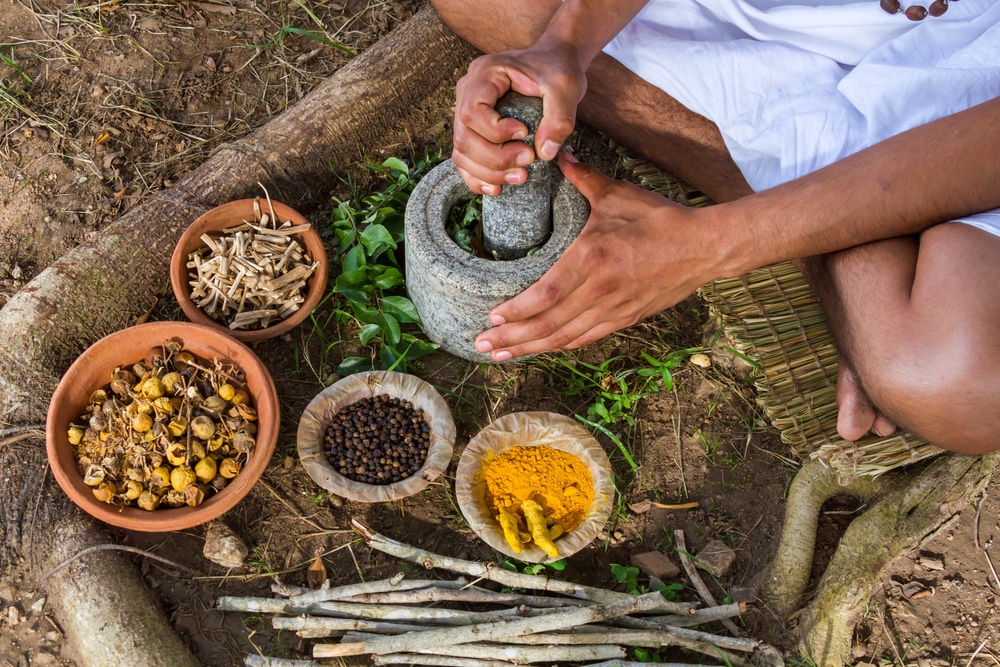Bringing hope of healthy living in global wellness market
Traditional medicine systems have always played an important role in meeting global healthcare needs. India has a rich heritage of traditional medicine systems like Ayurveda, Siddha, Unani and Yoga, Naturopathy, that are focused on maintenance of good health primarily. Importantly, traditional medicine systems adopt multipronged approach to manage diseases. Natural ways of finding the solutions in the management of various diseases was persistent in modern medicine which is evident by the fact that many modern medicines have been developed from natural sources. It is therefore not surprising to note that more than 80% of the world’s population relies on traditional medicines in one way or the other.
In our quest for natural cures through traditional medicine systems, it is utmost important not only to focus on quality , safety , efficacy, and rational use of traditional medicine but also to imbibe innovation and technology, data analytics for sustainable growth of the system. Traditional medicine has a vast knowledge base as well as a lot of evidence is being generated, however, there is a need for wider dissemination. Across the globe. Additionally, and crucially, traditional medicine systems are sustainable as they seek to provide natural remedies that are well adapted to concept of human health. For these reasons and more, traditional medicine must be celebrated and propagated widely across the world.
With the declaration of June 21 as International Yoga Day by UN and the utilization of Ayush healthcare services and robust research studies conducted during COVID-19 led to a greater acceptance of Ayush system. The world has witnessed a great surge in the demand of traditional medicine products and practices. The wide acceptance for traditional medicine systems is because they are effective, universally applicable and are relevant to cater to the healthcare needs at large. The pandemic has been a sharp reminder that we must work steadfastly to live in greater harmony with nature and traditional medicine is truly natural.
We must therefore celebrate our rich heritage in traditional medicine. We must utilize modern technology to promote greater use of natural medicines. World over, efforts should be made to consider traditional medicine systems and practices in respective national health strategies. Recognition and inclusion of traditional medicine would help medicine meet current challenges and be better prepared to counter unforeseen emergencies.
AYUSH medicine systems have colossal room for growth globally. We at the Ministry of Ayush, Government of India have made concerted efforts to promote traditional medicine systems, augmenting research-based evidence and technology. One of our endeavors here is the setting up of a Global Centre for Traditional Medicine in Jamnagar, Gujarat, for which we have partnered with the World Health Organization (WHO).
The Global Centre for Traditional Medicine is a bold new vision to catalyze global advancement in medicine. As many as 170 of 190 WHO member countries have reported the use of traditional medicine and their governments have sought WHO’s support in creating a body of reliable evidence and data on and products. The WHO GCTM envisages to harness the potential of traditional medicine from across the world through modern science and technology to improve the health of people. It will also concentrate on building a solid evidence base for policies and standards on traditional medicine practices and products and help countries integrate it as appropriate into their health systems and regulate its quality and safety for optimal and sustainable impact.
The institution will build capacity for sustainable innovation in traditional medicine. It will bring together the latest technology and knowledge to advance our understanding of traditional medicine already in use by billions of people.
Equity in access to healthcare is the thought behind the Global Centre for Traditional Medicine as it intends to focus on “Health for all” and to cater the unmet medical needs, promoting good health and wellbeing. While it’s physical location will be in Jamnagar, Gujarat, the Centre’s reach, and impact will be global. The Global Centre for Traditional Medicine will help us revitalize the society, celebrate our culture, and show gratitude to our ancestors.
By R.N. Acharya, Director General, Central Council for Research in Ayurvedic Sciences, Ministry of AYUSH



